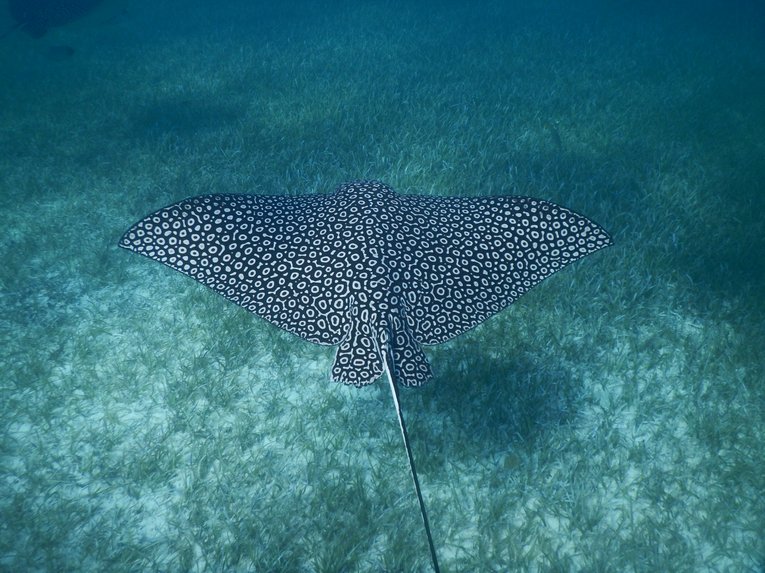
Marine biodiversity
Marine biodiversity is critical for a healthy planet and sustainable development. In marine terms, biodiversity encompasses anything under the waves - mammals to sea slugs, oysters to seagrass and everything in between.
Drivers of marine biodiversity loss in our seas
The Earth’s biodiversity is declining at a faster rate than at any other time in human history, and it’s one of the biggest threats facing our future. If the current rate of habitat loss and global warming continues, nearly 40% of all species will face extinction by 2099.
There are five direct causes:
- changing use of sea and land
- direct exploitation of organisms
- climate change
- pollution
- invasive non-native species.
What we’re doing to help biodiversity loss
Marine biodiversity is critical to sustainable development and achieving global Sustainable Development Goals (SDGs) across all three pillars: economic, social, and environmental.
The ocean is one of the main repositories of the world's biodiversity and is home to an incredible diversity of life. It contains 250,000 known species, with many more remaining to be discovered — at least two thirds of the world's marine species are still unidentified.
All of our work is underpinned by biodiversity.
Recovery projects

Credit: Amdeep Sanghera
We're working on a wide range of recovery projects both in the UK and overseas.
From restoring oysters in Dornoch Firth and replanting seagrass in Plymouth Sound, to improving the management of turtle fisheries in Turks and Caicos and improving awareness of sharks and rays in Anguilla, we’re working tirelessly to save the future of the ocean.
Our recovery projects are all essential to helping the ocean remain as diverse as it can be and returning it to a state that is not as negatively affected by human impact.
Marine Protected Areas

Credit: Anney Lier/Shutterstock
England's offshore Marine Protected Areas aren't properly protected - but they should be. Inadequate protections mean our seas continue to be damaged and degraded as fishing gear is ploughed through them. We're working towards change.
98
%
of UK's offshore seabed MPAs experience fishing activity
6
%
of UK’s seabed MPAs legally ban bottom-towed fishing gear
5,055
hrs
of fishing, including bottom trawling, in Dogger Bank MPA from 2021-22
World leaders need to act now
With 50-80% of all life on Earth being found in the ocean, it’s vital that world leaders act now to protect our seas and marine life - before it’s too late.
Too often, our blue planet is overlooked. In order to address the twin climate and nature crises our planet faces, world leaders must not forget the ocean. The UK Government must pave the way in securing international commitments to truly protect 30% of land and sea by 2030; invest in ocean recovery for nature-based solutions; and reduce the levels of pollution in our coastal environments. Our planet’s blue and green spaces must be equally valued, respected and protected.
The UK Government specifically must make significant progress domestically to deliver three key solutions to tackling the biodiversity crisis:
- Marine Protected Areas
- Sustainable fisheries through Remote Electronic Monitoring (REM)
- Action on chemical pollution
Join us
You can join our community of ocean champions by signing up as a member

Credit: Ella Daish - Marine Conservation Society

